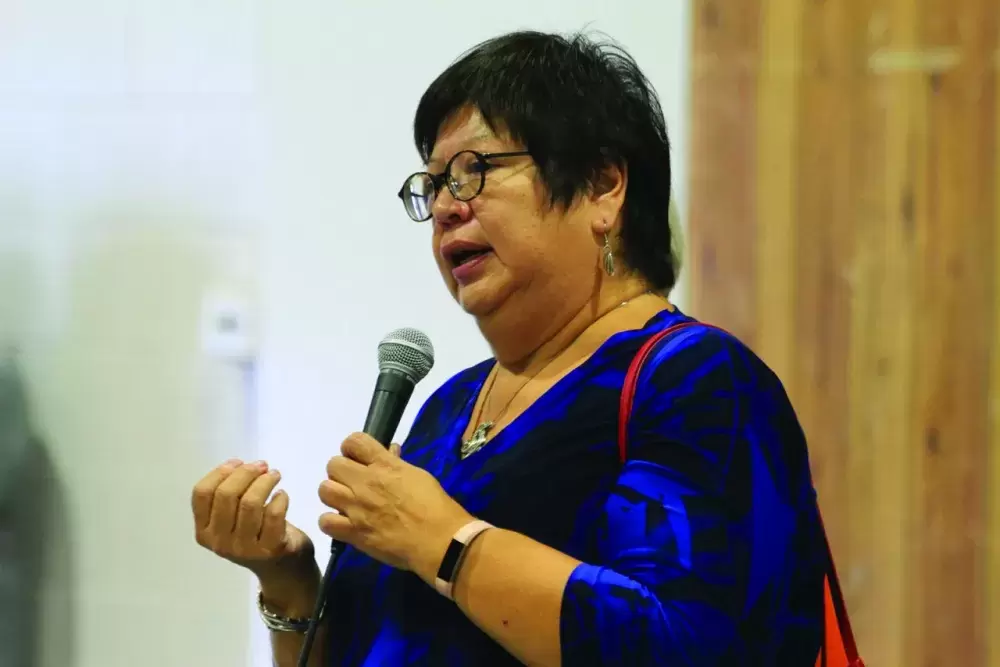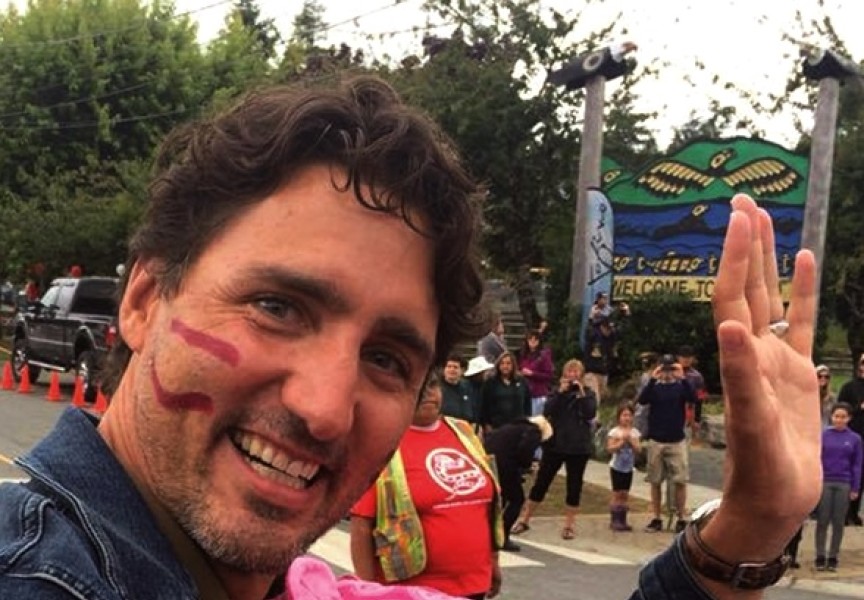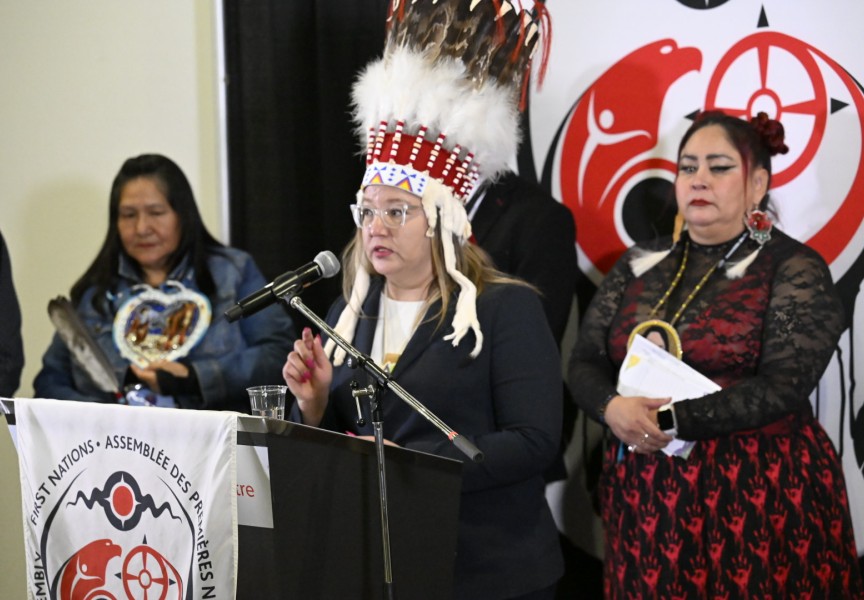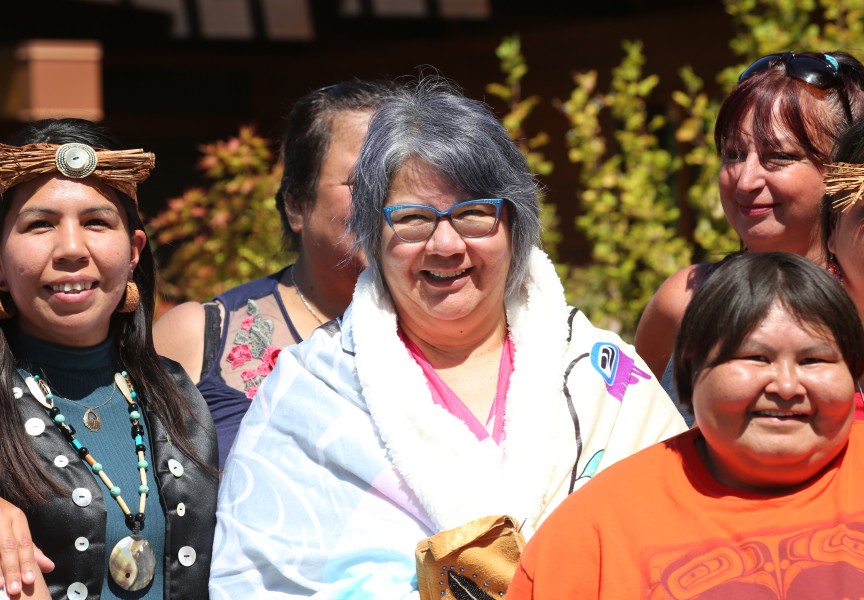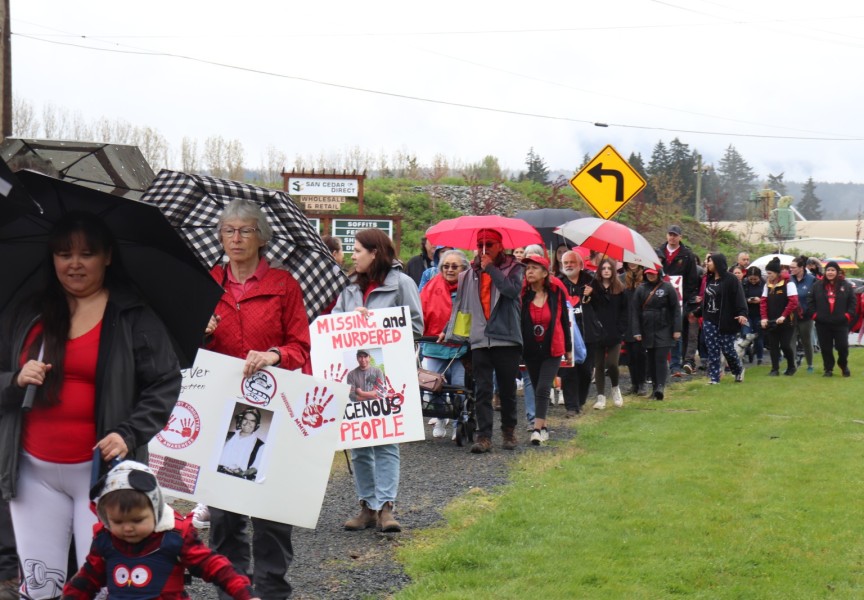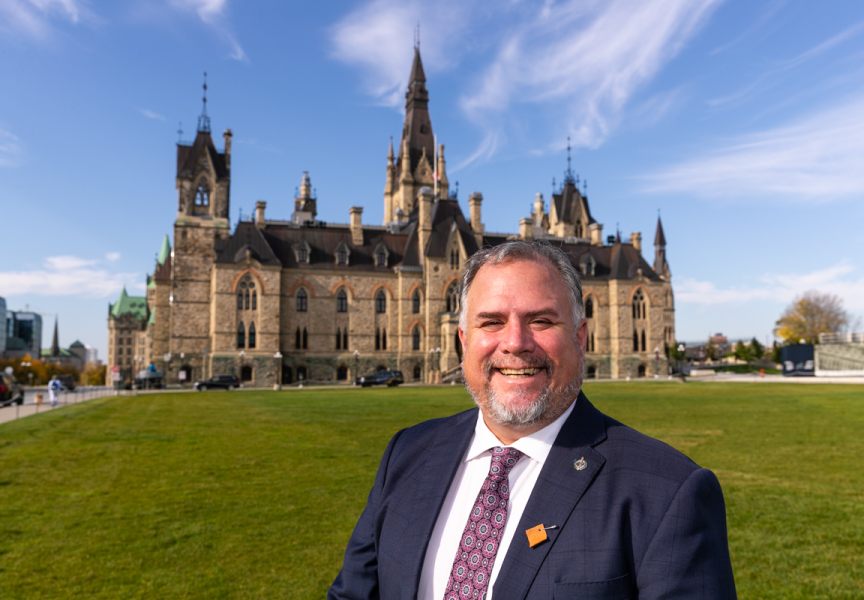A two-day forum will be held in May to determine how Nuu-chah-nulth are going to push their agenda forward in Ottawa.
Tentatively titled a ‘reconciliation forum,’ the event is scheduled May 9-10 in Maht Mahs on the Tseshaht reserve in Port Alberni. With $165,000 in funding from Canada’s Crown-Indigenous Relations and Northern Affairs, the forum is part of a Canada-wide initiative to engage Indigenous communities.
The Nuu-chah-nulth Tribal Council has funding for four delegates from each of its 14 member nations to attend, but the event is open to all Nuu-chah-nulth-aht as an open format for ideas to come forward.
“We are trying to talk to Nuu-chah-nulth leaders and people about what they think the nation-to-nation process is,” said NTC President Judith Sayers. “What is reconciliation? What is it going to take for Nuu-chah-nulth to settle with Canada?”
An NTC facilitator will also be reaching out to the individual nations for input. For those who can’t attend the Maht Mahs event, community meetings and gatherings in urban centres like Nanaimo and Vancouver are also being planned.
“It’s just an opportunity for Nuu-chah-nulth to come and talk. What do you want? What does our future look like?” said Sayers. “We’re hoping to have a paper for the AGM in September that can be adopted.”
This is all set to happen before this year’s federal election, which is expected to fall on Oct. 21. In this vote the Liberals will be fighting to secure a second mandate, with Indigenous relations expected to be a foremost issue among voters.
Back in 2015 Justin Trudeau made the lofty pledge of establishing an altogether different relationship with Canada’s Indigenous peoples than what was maintained under the Conservative leadership of Stephen Harper.
“It is time for Canada to have a renewed, nation-to-nation relationship with Indigenous Peoples, based on recognition, rights, respect, co-operation, and partnership,” stated the Liberal platform in 2015. “This is both the right thing to do and a sure path to economic growth.”
But while Trudeau has maintained that “No relationship is more important to Canada than the relationship with Indigenous Peoples” over the last four years, a number of issues remain outstanding among the country’s hundreds of First Nations, Metis and Inuit communities.
“Trudeau has failed miserably in trying to talk about that relationship as being the most important relationship,” commented Sayers. “I would like right now for Nuu-chah-nulth to just reflect on ourselves as a nation. What is it we want? What is it we want to do going forward?”
For members of the Ahousaht, Ehattesaht/Chinehkint, Hesquiaht, Mowachaht/Muchalaht, and Tla-o-qui-aht First Nations, the question of the implementation of rights continues to be a sore point, as the T’aaq-wiihak fisheries await the result of a court appeal on the scope that they can harvest and sell from their territorial waters. This right was upheld by the Supreme Court of Canada in 2009, but the scope of how this is exercised continues to be a point of contention with the federal government.
“For me, the biggest issues come in lands and waters. It’s just not on the federal agenda anywhere,” said Sayers. “I’m trying to find a way for us to drive our own agenda, that’s what self-determination is supposed to be about.”

